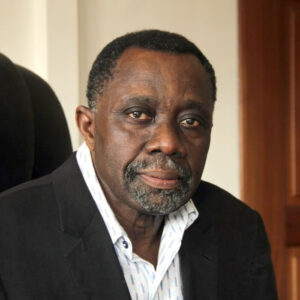ACET urges continuity in national development policies and programmes

Dr. Kingsley Y. Amoako, Founder and President of the African Center for Economic Transformation (ACET) Thursday said Ghana required consistency in national development policies and programmes.
In an interview with the Ghana News Agency, he emphasized that the tendency of a change in government interrupting the implementation and continuation of previous governments’ policies and projects should be stopped.
“In the past we have had this forty-year plan; this and that… and when another party comes to power, we stop and do not finish the projects. This must stop,” he said.
He made a call on the sidelines of the Compact Citizens’ Engagement forum held in Accra on Thursday.
ACET organised the forum in partnership with the National Commission for Civic Education (NCCE).
Dr. Amoako stated that one effective way to address the issue was to assess the role and effectiveness of the National Development Planning Commission (NDPC), strengthen it, and make it independent of government control.
That, he explained, could be accomplished through the use of the Compact Process, a project launched two years ago by The Ghana Compact, a subsidiary of ACET, that focuses on establishing a vision for the country, outlining collectively agreed-upon solutions to the country’s most pressing challenges, and identifying targets for tracking progress toward the agreed vision.
“The National Development Planning Commission’s role is critical because the constitution puts them in charge of planning. Unfortunately, the structure and the mandate of the NDPC has not been very effective.
“The compact process is to examine its role so that it can be independent and irrespective of whichever government, we make sure that we have continuity in the programmes and projects,” he said.
The forum, which brought together young people from all social classes, served as a platform for soliciting their ideas and innovations, which would be incorporated in the Compact Ghana social compact to be signed representatives of the people and the government.
He said ACET, through its Ghana Compact Initiative, conducted analysis and research on policy implementation in areas such education, health, climate change, and economic planning, where they figured the voice and opinions of the ordinary Ghanaian mattered.
“What we are doing now is to listen to the voice of the ordinary people because we believe that those on the ground also have recommendations that are relevant…we are actually getting some innovative ideas which even the technical experts have not considered,” he explained to the GNA.
Dr Amoako hinted that the solutions and recommendations arrived at the various forums held in Accra and elsewhere would be compiled into a social contract that would promote accountability on the part of the government though it would not be legally binding.
Prof. Asafu Adjaye, Senior fellow, ACET, announced the upcoming Citizens’ Convention on the 18th and 19th of June 2024, at the University of Ghana to explain the entirety of the document.
The document would be presented on 28th June at an event hosted by the Otumfuor Osei Tutu II, the Asantehene, to heads of political parties.
Kathleen Addy, the Chairperson of the NCCE, said her outfit was collaborating with ACET to facilitate the execution of the Compact process.
“NCCE is working in partnership with ACET to do this exercise of collecting ideas from ordinary citizens to feed the compact document, which is a new social contract that would reflect the aspirations of the people of Ghana.
“The objective is to ensure that all leaders will understand the compact and sign off on it to be able to commit to delivering this vision that people have for the future of Ghana,” she said.
Though Ghana remains a leader in African stability and governance, civil liberties and democracy on the continent, the country still faces political, social, and economic challenges.
The compact citizenship engagement aims to redirect the national focus towards sustainable national development.
Source: GNA
